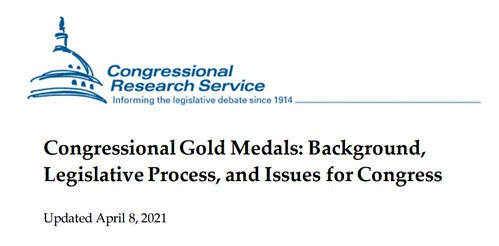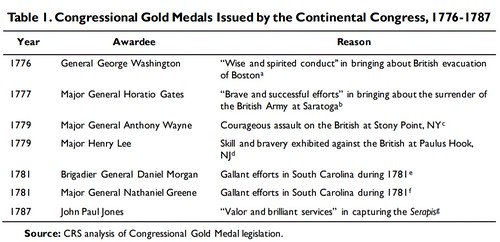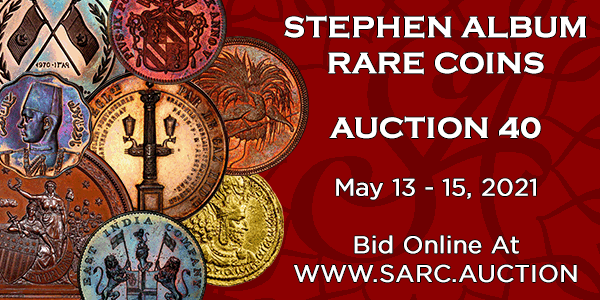
PREV ARTICLE
NEXT ARTICLE
FULL ISSUE
PREV FULL ISSUE
NEW BOOK: CONGRESSIONAL GOLD MEDALS
Heath MacAlpine advises us of the April 8th issuance of the latest edition of Congressional Gold Medals: Background, Legislative Process, and Issues for Congress, updated by Jacob R. Strauss of the Congressional Research Service of the Library of Congress. Introduction Since the late 1700s, Congress has expressed public gratitude to individuals and groups by awarding medals and other similar decorations. The first Congressional Gold Medals were awarded by the Continental Congress. Since that time, Congress has awarded gold medals to express public gratitude for distinguished contributions, dramatize the virtues of patriotism, and perpetuate the remembrance of great events. This tradition of authorizing individually struck gold medals bearing the portraits or actions of honorees is rich with history. Although Congress has approved legislation stipulating specific requirements for numerous other awards and decorations, there are no permanent statutory provisions specifically relating to the creation of Congressional Gold Medals. When Congress has determined that such an award is appropriate, it has, by special action, provided for the creation of a personalized medal to be given in the name of Congress. Early Practices
The Continental Congress authorized the first Congressional Gold Medals. As initially conceived,
Congressional Gold Medals were awards The first gold medals were struck in Paris under the direction of Colonel David Humphrey.
Following a long-standing historical practice, Congress commissioned gold medals as tributes for
what were considered to be the most distinguished achievements. Silver and bronze medals, and
ceremonial swords, were awarded for less eminent, but still notable, accomplishments. However,
only the gold medal has been continuously awarded to the present day.
The first Congressional Gold Medal was authorized on March 25, 1776, for George Washington,
then commander of the Continental Army, for his
To read the complete report, see:
Wayne Homren, Editor The Numismatic Bibliomania Society is a non-profit organization promoting numismatic literature. See our web site at coinbooks.org. To submit items for publication in The E-Sylum, write to the Editor at this address: whomren@gmail.com To subscribe go to: https://my.binhost.com/lists/listinfo/esylum All Rights Reserved. NBS Home Page Contact the NBS webmaster 
|


